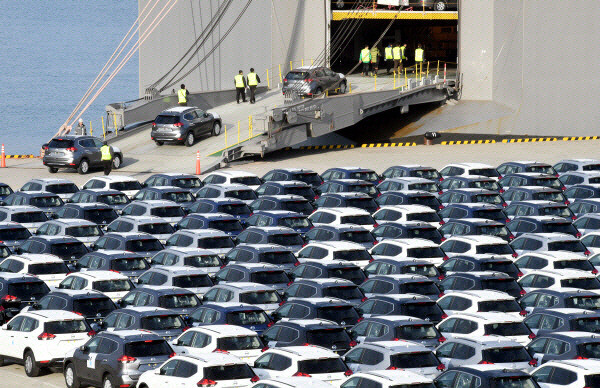
WASHINGTON D.C. – A significant trade measure initiated by the United States has come into force, imposing a 25% tariff on imported automobile parts. This development, which took effect at 00:01 AM Eastern Time on Saturday, May 3, 2025, follows the implementation of a similar 25% tariff on foreign-made vehicles that began on April 3rd. The move, spearheaded by President Donald Trump, is aimed at bolstering domestic manufacturing and reducing reliance on foreign supply chains within the automotive sector.
The proclamation outlining the 25% levy on auto components was issued on March 26th, signaling the administration's intent to extend its trade protectionist policies beyond complete vehicles. This decision has sent ripples through the global automotive industry, with particular concern mounting in nations with substantial auto parts exports to the American market, including South Korea.
In a move that offers a temporary reprieve for some, the United States has announced a conditional two-year mitigation strategy concerning the newly enacted parts tariffs. Automakers with assembly operations within the U.S. will benefit from a phased-in exemption. For the year spanning April 3, 2025, to April 30, 2026, tariffs will be waived on imported parts constituting up to 15% of the value of vehicles assembled domestically. This exemption will be adjusted in the subsequent year, from May 1, 2026, to April 30, 2027, where tariffs will be lifted on parts accounting for a maximum of 10% of the domestically assembled vehicle's price.
This temporary relief is anticipated to partially alleviate the immediate tariff burden on South Korean automotive giants Hyundai and Kia, both of which maintain manufacturing facilities within the United States. By sourcing a certain percentage of their components from overseas, they will still face the new tariffs, but the phased exemptions will provide a buffer.
However, the broader South Korean automotive parts industry, which exhibits a significant reliance on exports to the U.S., is bracing for a considerable economic impact. Data from the Korea International Trade Association (KITA) reveals a growing dependence on the American market, with the proportion of South Korean auto parts exports destined for the U.S. increasing from 29.5% in 2020 to 36.5% in the preceding year.
The magnitude of this trade relationship is substantial. In the latest available figures, South Korea's auto parts exports to the United States amounted to $13.5 billion, representing 6.4% of the total U.S. imports in this category. This significant volume underscores the potential for revenue losses and operational challenges for numerous South Korean component manufacturers.
Industry analysts predict that the 25% tariff could erode the price competitiveness of South Korean parts in the U.S. market, potentially leading to reduced orders and increased pressure on profit margins. Smaller and medium-sized enterprises (SMEs) within the South Korean auto parts sector, which may have less flexibility in adjusting their supply chains or absorbing increased costs, are considered particularly vulnerable.
The long-term implications of this tariff remain uncertain. There is speculation about potential responses from the South Korean government and industry, which could include seeking negotiations with the U.S. administration, exploring alternative export markets, or increasing investment in domestic production or other international manufacturing bases to mitigate the impact of the U.S. tariffs.
Furthermore, the move could incentivize U.S. automakers and parts suppliers to seek more domestic sourcing options, potentially reshaping the global automotive supply chain. The extent to which this shift occurs will depend on factors such as the availability and cost-effectiveness of American-made components.
The implementation of these tariffs marks a significant development in international trade relations and highlights the ongoing tensions surrounding global supply chains and national economic interests. The South Korean auto parts industry now faces the challenge of navigating this new trade landscape to minimize potential losses and secure its future in the crucial U.S. market.
[Copyright (c) Global Economic Times. All Rights Reserved.]



























